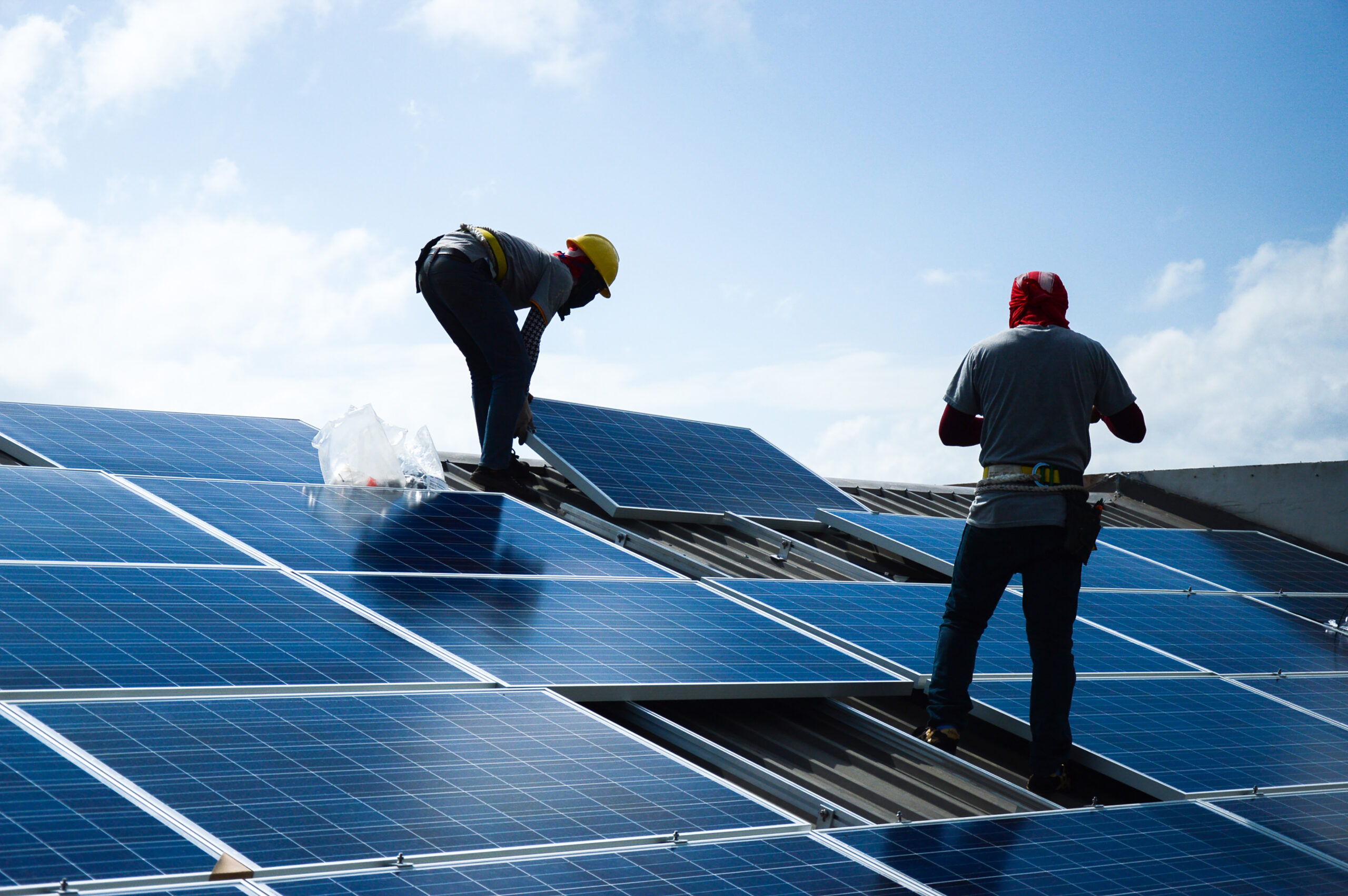Policy name: Green roof and solar requirements for new and existing buildings in New York City to foster sustainability
Overview: According to new legislation passed by the New York City Council, all new roofs installed in the city (aside from the exceptions indicated below) must include solar panels and/or green space, in order to save energy and create environmental sustainability.
Location: New York, New York
Population: 8.4 million
Food policy category: Sustainability
Program goals: To reduce the use of fossil fuels in order to improve air quality and fight climate change.
How it works: As of November 2019, developers must include solar panels, green space, or a combination of the two on all new or renovated roofs in New York City. Exemptions are made for roofs at extreme slants, roofs that already contain structures such as water towers or greenhouses, residential buildings with fewer than 100 square feet of roof space, or other buildings with fewer than 200 square feet of roof space. Furthermore, apartment-building terraces and school-roof playgrounds will not be affected by the legislation.
Property owners will be responsible for buying and maintaining the solar panels, which cost about $30,000 each. However, the solar panels will reduce Con Edison electric bills, so it is assumed that property owners will be saving money on energy in the long run.
Green spaces on roofs have a much lower price tag than solar panels, at an installation cost of $10 to $40 per square foot. The greenery will help to reduce flooding when it rains. The plants and soil would soak up and use the rainwater and release it through evaporation, rather than letting it seep through the roof into the building. Green roofs also provide insulation and a natural cooling effect in the summer, which decreases the need for air conditioning. In the winter, the insulating effect of the greenery can help to reduce the amount of heat that is lost through the roof.
Progress to date: New York City Councilman Rafael Espinal introduced the legislation in July 2018, and the laws went into effect on November 15, 2019.
Why it is important: The City of New York was the first city in the world to establish a local plan in accordance with the Paris Agreement. The city pledged to reduce greenhouse gas emissions by 80 percent, measured from 2005 to 2050, in addition to achieving carbon neutrality (zero human-caused carbon dioxide in the atmosphere) by 2050. In 2015, buildings in New York City accounted for 67 percent of greenhouse gas emissions from natural gas, electricity, heating oil, steam, and biofuel. (An additional 30 percent stemmed from the transportation sector, and the rest was from landfills and wastewater treatment plants.) Solar panels and green spaces on roofs could reduce the use of fossil fuels and decrease the need for other energy sources that contribute to air pollution and climate change.
Fighting climate change and decreasing greenhouse gas emissions are important for food production and food security worldwide. Extreme weather damages crops and makes living conditions for livestock more difficult. High carbon dioxide levels in the atmosphere (as from greenhouse gases) can reduce the nutritional quality of crops, including potatoes, barley, rice and wheat, thereby leading to nutritional deficiencies in humans and animals that consume these plants. Reducing greenhouse gas emissions worldwide, using strategies such as those in the New York City legislation, could reduce the human health burden by nearly 50 percent.
Program/Policy initiated: The laws went into effect on November 15, 2019.
Point of contact:
- Councilman Rafael L Espinal, Jr. (District 37)
- Email: REspinal@council.nyc.gov
- Phone: 718-642-8664 (District Office); 212-788-7284 (Legislative Office)
Similar practices: San Francisco was the first city in the U.S. to require solar panels on new homes effective in 2017, and South Miami also established a similar mandate in 2017. In May 2018, California became the first state to pass a law mandating solar panels on all new homes. The California state law will go into effect in 2020.
Evaluation: Evaluation has not been conducted to date.
Learn more:
- Action on Global Warming: NYC’s Green New Deal (New York City Office of the Mayor)
- Climate Change and Global Food Systems: Potential Impacts on Food Security and Undernutrition (Annual Review of Public Health)
- Green Roof Benefits, Opportunities, and Challenges – A Review (Renewable and Sustainable Energy Reviews)
- Sources of Greenhouse Gas Emissions (Environmental Protection Agency)
- Why ‘Climate Neutral’ Is the New Climate Change Mantra (Washington Post)
References:
- The Benefits and Challenges of Green Roofs on Public and Commercial Buildings (United States General Services Administration)
- Buildings Bulletin 2019-010 (New York City Construction Codes)
- California Will Require Solar Power for New Homes (The New York Times)
- Increases in Atmospheric Carbon Dioxide: Anticipated Negative Effects on Food Quality (Public Library of Science Medicine)
- Inventory of New York City Greenhouse Gas Emissions in 2015 (New York City Mayor’s Office of Sustainability)
- The Living Roof Takes Root (The New York Times)
- New Laws Require All New Roofs to Contain Solar Panels or Green Space (Brooklyn Paper)
- New Laws Will Require New Buildings to Have Solar Panels, Green Space on Roofs (News 12 Brooklyn)
- The Paris Agreement (United Nations Climate Change)
- Recognizing the Duty of the Federal Government to Create a Green New Deal (Congress.gov)
- San Francisco 1st City in US to Require Solar Panels Be Installed on New Construction (NBC Bay Area)
- Soak Up the Rain: Green Roofs (Environmental Protection Agency)
- South Miami is Going Solar, but Not Everyone is on Board (Miami Herald)
- What is the Green New Deal? A Climate Proposal, Explained (The New York Times)


